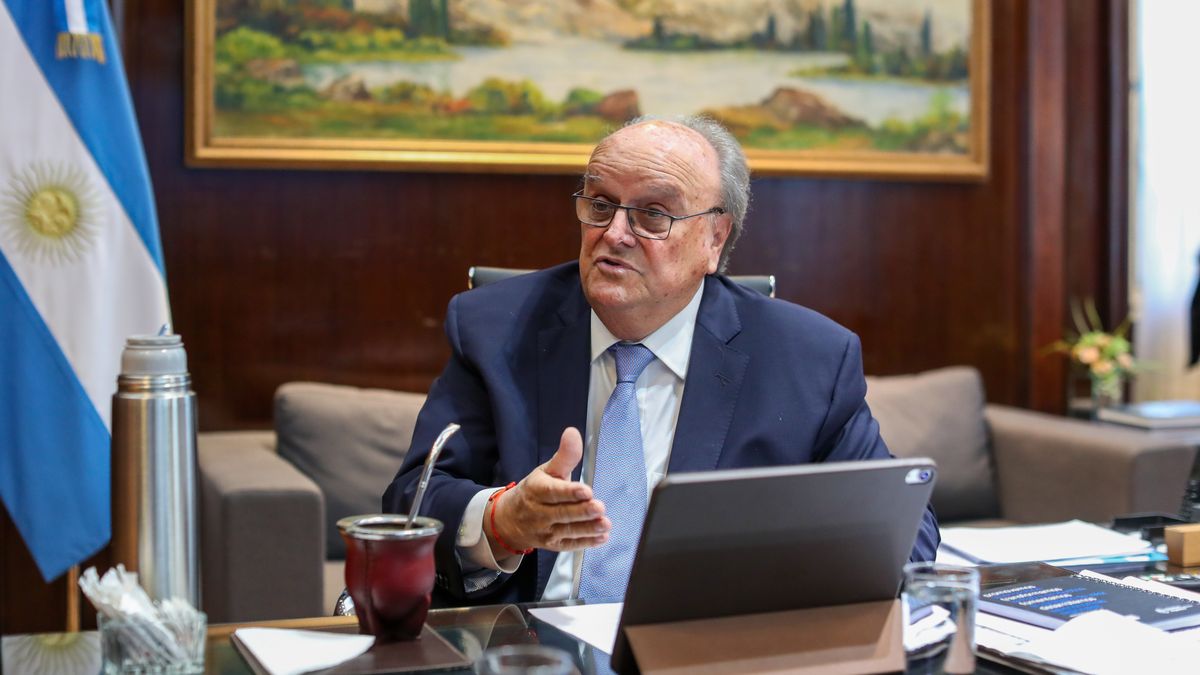Jose Ignacio de Mendiguren: My obsession is to maintain the level of activity, even despite the lack of dollars. The priority is the activity for employment and that the crisis does not take it away, now there is the challenge of how to maintain purchasing power. We are clear that it is not a structural problem, but a circumstantial one. This year we expect to end up with $93 billion in exports. But today we are import-dependent, for every point that the product rises, imports rise three. We are not going to solve that problem this year, so we have a bottleneck, that is why we are managing the dollars we have every day.
Q.: But can the activity be maintained with these dollars?
JM: It costs us, that’s why every day we take action. Massa aimed in the United States to tempt those who have undeclared accounts to bring it and invest. We are more interested in the investment that comes from savings than a financial loan. The decree was also issued to generate more hydrocarbon exports. The external restriction is structural, due to the model, so you have to attack the model and go to one with greater added value.
Q.: But are those dollars enough in the short term for soybeans, hydrocarbons or international credits?
JM: I already lived this reality in 2002, the IMF did not lend us a peso. You have to think about the dollars of the Argentines who see a favorable scenario and do not doubt it. I am hopeful because I know my industrial peers and that resilience. There is not a single industrial SME, which is the great network, which, having a market, does not obtain the money so that its company does not stop. No one leaves a business if it is. The Argentine mobilizes, I saw it, I do not theorize it. Large companies in the face of a temporary lack of dollars can be helped by their parent companies.
Q.: However, there are many complaints about problems importing, do they reach you?
JM: Yes, of course, they want to kill me. But he has a way out. First, it will be that we spend less on energy and finish the gas pipeline quickly. Sergio is already putting out to tender the other section.
Q.: But would that be a medium-term solution rather than a short-term one?
JM: But for the history of a country, what is a year? The energy problems will continue. In Argentina we have what the world needs, which is food and energy. The train of development is passing us by. We must take advantage of this agenda to achieve a concrete political agreement with the opposition and not stay fighting on the platform. There are concrete facts that in a short time we are going to find another Argentina. We are looking for solutions: we find in a sector like soybeans the possibility that it will bring us dollars. Then others come to ask me for the Malbec dollar. But the regional economies do not have that capacity to generate dollars, and they do not have retentions either.
Q.: Would you be in favor of discussing requests from SMEs, such as industrial laundering for imports?
JM: Without investment you don’t get out. The discussion of whether it is good or bad can be given in another scenario. Today I need those dollars. I ask them through promoting investment, or who do I ask? From the crisis of 2002 it came out with the dollars of the real economy, and other measures such as the competitive exchange rate.
Q.: Is the exchange rate competitive today?
JM: When you look at the history line, it’s not a bad exchange rate. Last year it was delayed because it did not keep up with inflation. Do not make the mistake of using it as the only anti-inflationary anchor because it costs a lot later. What if we have to finish is the breach, it is very bad, it lends itself to lots of operations that also cost us dollars and we are investigating.
Q.: And a devaluation to close the gap is a way?
JM: What I think is that today the biggest concern is inflation and purchasing power. A sharp devaluation goes to prices. And we want to defend purchasing power because it is the engine of the internal market, so we are not going to fall into that trap.
Q.: Differential dollar for the industry, how was the proposal of the SME dollar at some point, is there going to be?
JM: Today is not scheduled. What we are doing is making foreign exchange available for increased production and exports. This Friday the law for automotive is enacted, the same has already come out for hydrocarbons.
Q.: Is the request of the industrialists that dollars for production be prioritized over tourism?
JM: Yes, totally, every day we have complaints. Nobody wants to say it so as not to look bad. The day of the industry in Santa Fe one of agricultural machinery drilled me in the head. What we are working on is how we optimize the dollars that we have. This is done in two ways, bringing more and spending less. In an emergency, the emergency is for everyone. They make you these questions that make common sense in this enormous crisis, that’s why they talk about the Qatari dollar. We are happy that as many people as possible travel, but if we do not have an input and we have to spend a hotel in Qatar with a card, people are annoyed.
Q.: And in the economic team, what is being thought?
JM: There are many solutions, such as raising the tax, but it has to be analyzed. I think that has to be taken into account. I personally share the industrial approach. We are all making efforts. The field is going to liquidate US$5,000 million. There will be requests from those who have to travel for work or to see a relative. But it is not that it will be prohibited.
Q.: Will you have to use your own dollars?
JM: Or there are also other options. We need activity and employment to be maintained. And let the growth spill. As is the case with the Pre-Trip plan, which encourages domestic tourism and saves dollars. Now, let’s go to us entrepreneurs…
Q.: A 100% increase in the prices of restaurants and hotels in the last year…
JM: That’s not how it goes. It cannot be that a measure is taken that costs everyone and you are not up to the effort, and you want to recover everything in one season. This is the problem we have. As an industrialist, I don’t forget that salaries were paid two years ago. That the whole society paid them. We industrialists are making mistakes. We all have to sit down at a table, with the opposition, the businessmen and the unions, as it was in 2002, and resolve inflation with a political agreement.
Q.: Wholesale inflation was above the CPI in August, did you expect it?
JM: We expected less, but a month ago the bullfight left the dollar at $350, the price references were lost, the businessmen sold by open delivery, at that time people hedged to continue selling, they put overprices. But nothing was accomplished, the dollar fell, the debt in pesos was cleared, reserves are being accumulated. We were left with prices that responded to an expectation and now they do not respond to that.
Q.: Could those prices go down now?
JM: I’m going to bring that up. The agreement is, we stabilize the variables, but maintain the level of activity and purchasing power.
Q.: Are you worried about 100% interest rates for the industry?
JM: Yes, it is my fight within the economic team. We had a rate policy below inflation for productive sectors and the result was excellent. I am going to fight for it to continue because that rate differential is returned to you in more employment, more taxation, and more activity.
Source: Ambito
David William is a talented author who has made a name for himself in the world of writing. He is a professional author who writes on a wide range of topics, from general interest to opinion news. David is currently working as a writer at 24 hours worlds where he brings his unique perspective and in-depth research to his articles, making them both informative and engaging.




